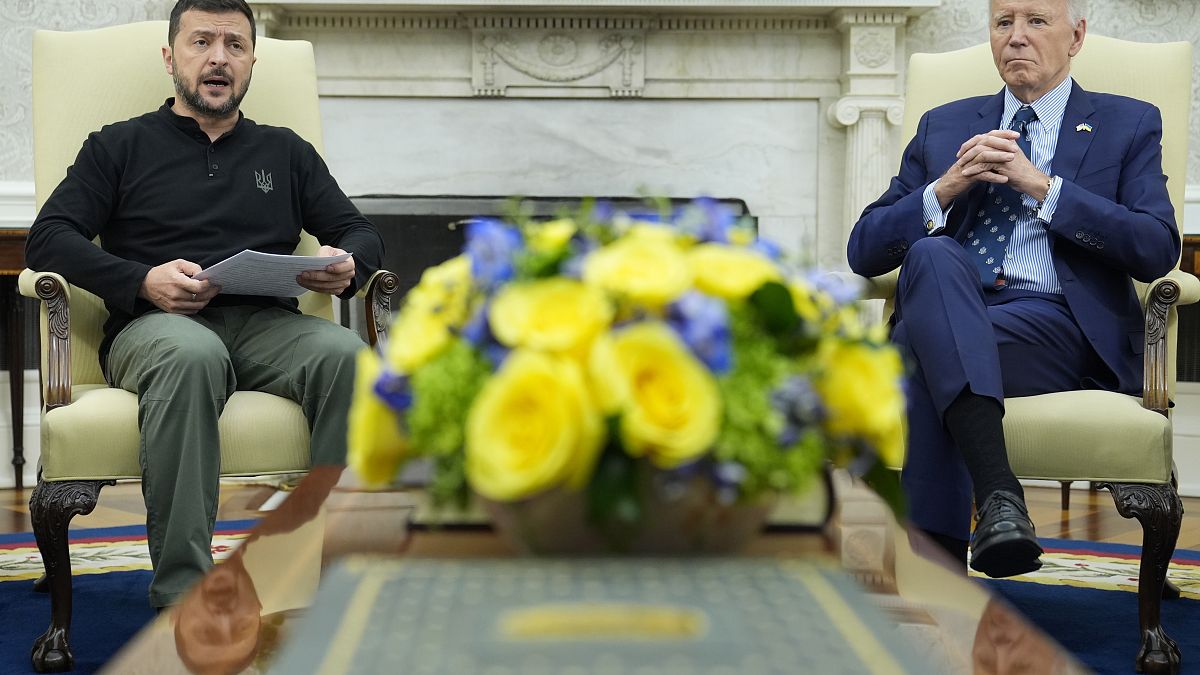The latest edition of State of the Union highlights the important visit of Ukrainian president Volodymyr Zelenskyy to the U.S., the recent economic forecast by the EBRD, and efforts to support the struggling German car industry. Germany’s car manufacturers, a key industrial sector in the country, are facing a serious crisis due to a collapse in the electric vehicle market. This crisis could have ripple effects throughout the EU, with threats of job cuts, plant closures, and falling earnings at major companies like Volkswagen, Mercedes-Benz, and BMW. The German government, facing financial constraints and trade disputes with China, is limited in its ability to provide quick fixes for the industry. Economy minister Robert Habeck emphasized the importance of long-term planning rather than short-term solutions.
The Ukrainian president, Zelenskyy, has been advocating for support for his country in the face of ongoing war and economic challenges. He has expressed his opposition to negotiating with Russian President Putin, emphasizing the need to defend Ukraine’s people and territory. Zelenskyy’s “victory plan” aims to garner international support for Ukraine’s efforts. The EBRD’s latest outlook on the Ukrainian economy highlights the challenges faced by the country, as well as other regions in eastern Europe and central Asia. The bank’s findings are seen as a key indicator for the global economy, providing insights into the economic conditions in these regions. Beata Javorcik, the chief economist of the EBRD, discussed the challenges facing these economies, including high energy prices, muted export demand, and high borrowing costs.
The Regional Economic Prospects report by the EBRD, titled “Along the adjustment path,” indicates the difficulties faced by economies in Europe in the current economic climate. High energy prices, low export demand, and high borrowing costs pose challenges for countries in the region. Despite these challenges, there have been some positive developments, such as a decline in inflation and an increase in real wages. The disinflation process has been relatively fast, with real wages beginning to catch up after a period of decline. However, some countries still face inflationary pressures, particularly due to depreciation of domestic currencies.
Ukraine’s economy has been particularly impacted by the ongoing war, with challenges such as rolling blackouts, shortages of electricity, and the need to import electricity at a higher cost. Despite these challenges, the Ukrainian economy managed to grow in the first quarter of the year, with exports of grain and metals contributing to this growth. However, the destruction of electricity infrastructure due to heavy bombing has weighed down on the economy, leading to ongoing challenges for the country. The situation in Ukraine serves as a reminder of the broader economic challenges faced by countries in the region and the need for international support to address these issues.











